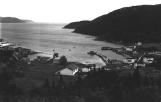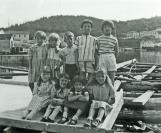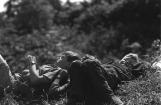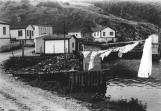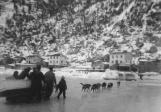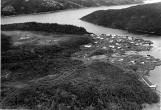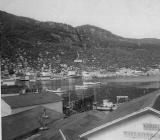1
Until modern times, the island of Newfoundland was for the most part populated by people living in small rural communities, often called outports. To this day the culture of the island is connected to the traditions of those small places. Its strength has been such that even when people leave their home communities for work on the mainland, they continue to identify themselves as Newfoundlanders first. Growing up in these small towns is remembered as a time of freedom and close extended families. Not all of life was fun and games, but it was those fun times and close extended families that seal the life-long connection to their special home places.4
I look back and say how lucky we were as kids. We had a wonderful childhood. It was absolutely wonderful. The freedom!6
What's best about living in a small place? Just the freedom and the clean air. Free to run. Nobody worried about the kids because everybody would more or less watch out for every kid, keep an eye out for them. There were enough kids around that we could have plenty of fun.Joan Weir Kinden - Roddickton
10
My dad used to be the mail carrier. He used to walk from Little Harbour Deep to Great Harbour Deep to pick up the mail in the winter with his dogs. He had just two dogs so he did most of the walking and pushing behind the sled. He left really early in the morning - I would say probably 4 o'clock - and he came back at dark, probably by dinnertime the next evening.12
One of the things that haunts me now when I think about it ws the isolation. I found it really lonely there. Once the snow went, you had to wait until alll the pack ice went before you could get anywhere in boat. And then in the fall of the year, the weather got back you weren't able to get anywhere. It was a long dreary time from the end of August until December when you could get somewhere on snowmobile. Then you had the doorway in the winter when you could ge somewhere on a snow machine. Then you had the whole cycle all over again in the spring. You only had three or four months when you had access to the outside. As a kid you never really had access then. You needed someone to take you.Tony Kearney - Croque
14
Even though my parents moved after I got married, I would go over there to visit them but it wasn't like going home. I missed going home. For a number of years I didn't go back. I don't know why. I t hought it would be too sad. Still for some reason I wanted to go back and finally did in 1999. I just couldn't believe how much it had changed. Like I was expecting to see at least a part of our old house and our stage, but there was nothing. Nothing left there.Alice Alyward Dower - Fishot Island
